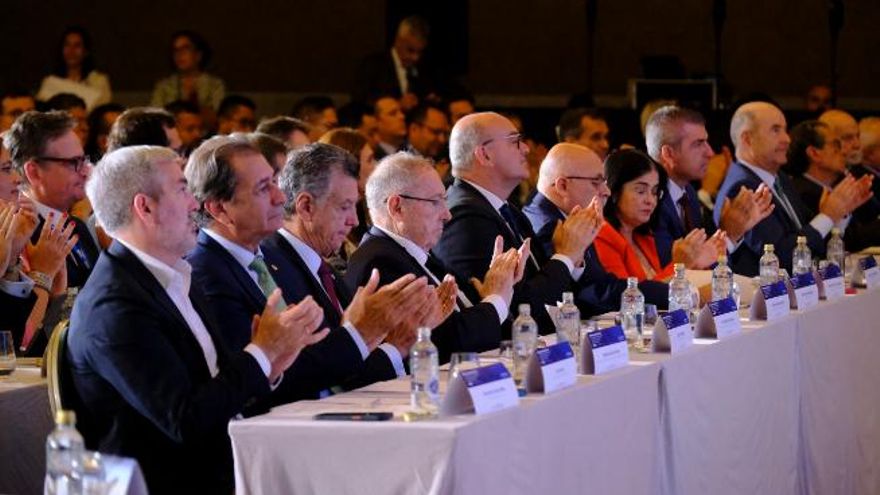A New Global Trade Landscape
The world of international trade has been turned on its head since Donald Trump began his second term as US President this past January. The tariffs imposed on goods and products from other countries have significantly eroded the multilateralism championed by free trade. This new “Trumpism” is leading to the formation of economic blocs, and in this climate, the Canary Islands are emerging as a pivotal hub for new and strengthened ties between Europe and Latin America.
Uncertainty Breeds a Search for Cooperation
Such uncertainty is unpalatable for both businesses and capital, and rarely has there been so much of it. It is precisely in this context that the 52nd General Assembly of the Ibero-American Association of Chambers of Commerce (AICO) was held, hosted by the Chamber of Commerce of Gran Canaria. The theme of the gathering left no room for doubt: “Ibero-American Chambers of Commerce, Protagonists of the Economic Future.” Its objective was equally clear: to “seek new avenues of collaboration to reinforce economic and commercial integration on both sides of the Atlantic.”
A Bet on Cooperation Over Imposition
The event embodies, in the words of the President of the Gran Canaria Council, Antonio Morales, a “commitment to international cooperation” in opposition to the “imposition of rules,” a point also referenced by the lead researcher at the Elcano Royal Institute, Uruguayan economist Ernesto Talvi. In this struggle to maintain a degree of mutual benefit in trade relations, chambers of commerce “provide the best framework for trust and business cooperation,” emphasized the president of the Gran Canaria institution, Luis Padrón.
Building Bridges Across the Atlantic
“Chambers of commerce in general, and AICO in particular, are the bridge for economic development, regional integration, and Ibero-American cooperation,” added Padrón, addressing his counterparts and other representatives from Brazil, Mexico, Argentina, Colombia, Chile, Panama, Peru, Bolivia, Venezuela, Honduras, Cuba, the Dominican Republic, Portugal, and Spain, alongside various corporations and businesses. In total, the assembly brought together over 40 chambers of commerce from fourteen countries, with more than two hundred participants registered.
Navigating a New Economic Reality
The decisions made by Donald Trump have stirred a hornet’s nest, and now that nothing is as it was, the actors—in this case, businesses—must adapt. This makes the assistance provided by chamber institutions all the more critical, both for the “modernization” of existing businesses and for the opening of new market niches, as detailed by the President of the Canary Islands, Fernando Clavijo.
Canary Islands’ Success Stories
The Canary Archipelago itself offers clear examples of this successful adaptation, with a growing number of success stories in sectors like audiovisual production and video game development. However, these positive developments are not enough on their own. The ongoing challenge is to continue fostering environments where the Canary Islands’ productive fabric and economy can continue to expand.
The Power of Public-Private Partnership
Public-private collaboration, highlighted by all the public representatives who participated in the inauguration ceremony—including the Mayor of Las Palmas de Gran Canaria, Carolina Darias, and the Central Government Delegate in the Islands, Anselmo Pestana—is one of the key tools that chambers of commerce are making available to drive this progress.

